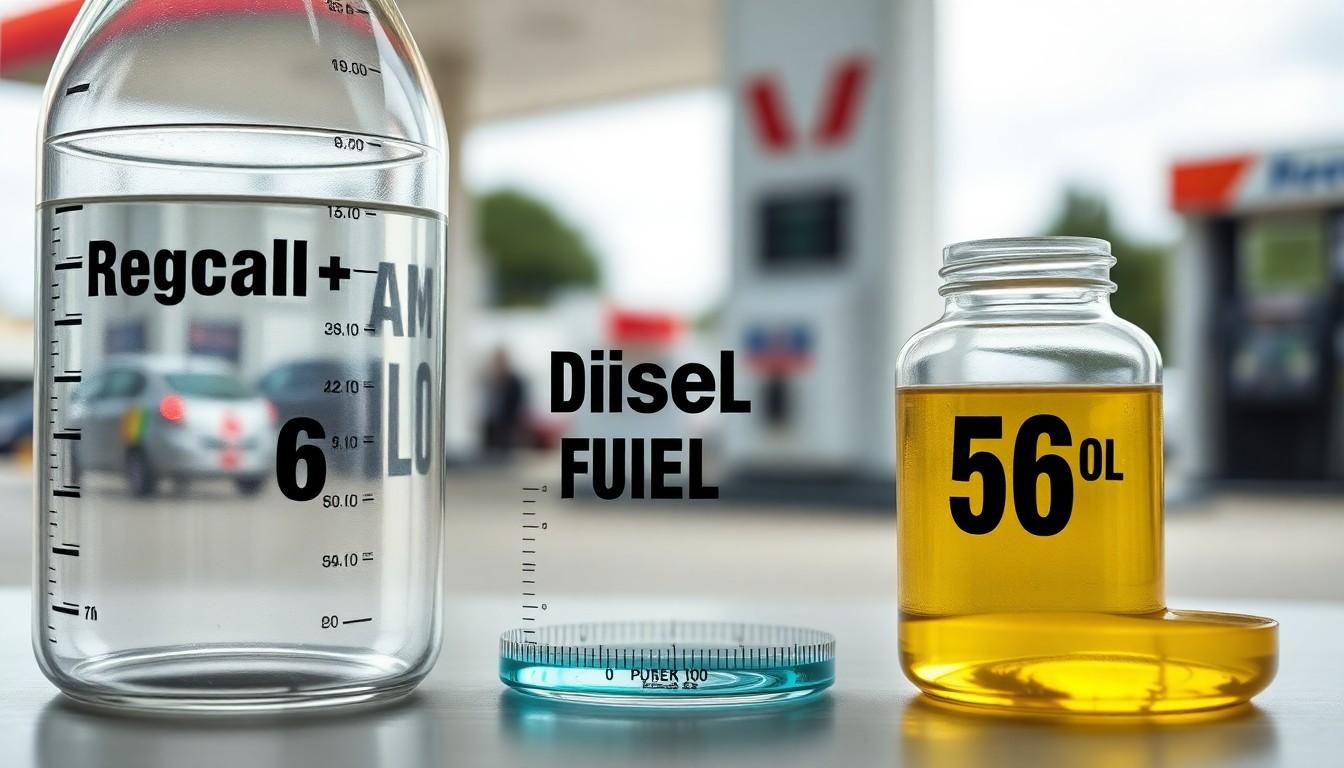Ever wondered how much a gallon of gas actually weighs? While we often think about fuel in terms of price or miles per gallon, understanding its weight can be surprisingly useful for various calculations, from fuel efficiency to transportation logistics.
We’ve researched this common question to provide you with the definitive answer. The weight of gasoline isn’t constant—it varies based on temperature, composition, and grade. Whether you’re a curious driver, fuel efficiency enthusiast, or someone planning a road trip with weight considerations, knowing exactly how much that liquid gold in your tank weighs can be valuable information.
Understanding Gas Weight: The Basics
Gasoline weight varies depending on several key factors, primarily its density. The average gallon of gasoline weighs approximately 6 to 6.3 pounds at room temperature. This weight isn’t constant across all gasoline types due to differences in chemical composition between regular, mid-grade, and premium fuels.
Temperature plays a important role in determining gasoline’s weight. Cold gasoline is more dense, making it heavier per gallon compared to warm gasoline. For instance, gasoline at 60°F weighs about 6.2 pounds per gallon, while the same volume at 100°F might weigh closer to 6 pounds.
Molecular composition directly affects a fuel’s weight characteristics. Gasoline consists of various hydrocarbons with different molecular weights, including components like octane, heptane, and hexane. These compounds combine to create the exact weight profile of each gasoline blend.
Seasonal formulations introduce additional variability to gasoline weight. Summer blends typically contain additives that resist evaporation in hot weather, often making them slightly heavier than winter formulations. These seasonal differences typically account for weight variations of 1-2% per gallon.
Energy content correlates closely with gasoline weight. Heavier gasoline generally contains more energy per volume, though modern refining processes aim to standardize energy content across different grades. Each pound of gasoline contains approximately 19,000 BTUs of energy, regardless of its grade or formulation.
How Much Does a Gallon of Gas Weigh?

A gallon of gasoline has a exact weight that varies based on several factors including temperature and fuel type. Let’s examine the weight differences across various fuel types commonly used in vehicles today.
Regular Gasoline Weight
Regular unleaded gasoline weighs approximately 6 pounds per gallon at room temperature. This weight isn’t constant and typically ranges between 5.76 and 6.35 pounds depending on the exact gasoline blend and ambient temperature conditions. The molecular composition of regular gasoline creates this relatively consistent weight profile, making it the standard reference point when comparing different fuel types.
Diesel Fuel Weight
Diesel fuel is noticeably heavier than regular gasoline, weighing around 7.1 pounds per gallon. This increased weight results from diesel’s denser molecular structure and higher energy content per volume. Temperature fluctuations affect diesel’s weight similarly to gasoline, with colder temperatures causing the fuel to become slightly heavier due to increased density. The greater weight of diesel corresponds to its higher energy density, which contributes to the fuel efficiency advantages diesel engines often demonstrate.
Premium Gasoline Weight
Premium gasoline maintains a weight very similar to regular unleaded, averaging about 6 pounds per gallon. Even though having a higher octane rating, premium fuel doesn’t differ significantly in weight from regular gasoline. The weight remains within the same range of approximately 6 pounds per gallon, with minimal variations attributed to temperature changes and exact fuel formulations. Premium fuel’s weight consistency demonstrates that octane rating affects combustion properties rather than substantially altering the fuel’s physical weight characteristics.
Factors Affecting Gasoline Weight

Gasoline’s weight isn’t constant and varies based on several key factors. Understanding these variables helps explain why the standard six-pound estimate for a gallon of gasoline isn’t always precise in real-industry conditions.
Temperature Variations
Temperature significantly influences gasoline’s weight through its direct effect on density. Gasoline expands when heated, making it lighter per gallon, and contracts when cooled, becoming denser and heavier. At typical room temperature, gasoline maintains its approximate six-pound weight, but this measurement changes with temperature fluctuations. Cold winter mornings might see gasoline weighing more per gallon than on hot summer afternoons. This expansion and contraction phenomenon explains why gasoline delivered to gas stations early in the morning may provide slightly more energy content per measured gallon than fuel purchased during the heat of the day.
Fuel Additives
Additives mixed into gasoline create notable weight variations between different fuel formulations. Substances like methanol, water, and benzene alter both the density and weight characteristics of the final product. Premium 93-octane fuel, for example, can range from 5.93 to 6.42 pounds per gallon depending on its exact additive mixture. Ethanol, commonly added to gasoline in the U.S., weighs less than pure gasoline, so higher ethanol blends typically weigh slightly less than conventional gasoline. Detergents and other performance-improving additives contribute minor but measurable weight differences between various gasoline brands and grades, explaining subtle variations even within the same octane rating.
Why Gas Weight Matters

The weight of gasoline impacts various aspects of vehicle performance and logistics operations. Understanding these weight implications helps optimize both driving efficiency and fuel management practices.
Fuel Economy Considerations
Gasoline weight directly affects your vehicle’s performance and fuel consumption. Each gallon of gas adds approximately 6 pounds to your vehicle’s total weight, influencing overall efficiency and handling dynamics. Vehicles carrying full tanks experience this additional weight across their entire driving range, which can impact acceleration and braking characteristics. Extra weight requires more energy to move, potentially reducing your miles per gallon, especially in smaller vehicles where the fuel weight represents a higher percentage of the total vehicle weight. Long-distance travelers often calculate optimal fuel loads to balance weight considerations with the need to minimize refueling stops.
Transportation and Storage Implications
The 6-pound-per-gallon weight of gasoline creates important considerations for both transportation logistics and storage requirements. Fuel transporters must account for this weight when calculating load limits, as tanker trucks carrying thousands of gallons face strict weight restrictions on highways and bridges. Storage facilities design their structural supports based on the approximately 6.073 pounds per gallon weight to ensure tanks can safely hold their intended capacity. Temperature fluctuations in storage facilities affect the precise weight of stored gasoline, requiring monitoring systems that account for these variations. Commercial operations handling large fuel volumes rely on accurate weight calculations to optimize their transportation routes and storage configurations, eventually affecting operational costs and efficiency.
How to Calculate Gas Weight for Different Volumes

Calculating gasoline weight for various volumes is straightforward once you know the baseline weight per gallon. A simple multiplication formula helps determine the total weight of any amount of gasoline you’re dealing with.
To calculate the weight of gasoline for any volume:
- Take the number of gallons
- Multiply by approximately 6 pounds (the average weight per gallon)
- The result gives you the total weight in pounds
For example, 10 gallons of gasoline weighs approximately 60 pounds (10 gallons × 6 pounds/gallon). Using a more precise measurement of 6.073 pounds per gallon would yield about 60.73 pounds for those same 10 gallons.
Different fuel types require adjustments to this calculation. When calculating diesel fuel weight, multiply by 7 pounds per gallon instead of 6 pounds, reflecting diesel’s greater density compared to gasoline.
Temperature variations also affect these calculations. Cold gasoline weighs slightly more than warm gasoline, so precise calculations might incorporate temperature adjustments for extremely accurate results.
For quick reference, here’s a table showing weights for common gasoline volumes:
| Gasoline Volume | Approximate Weight (using 6 lbs/gal) | More Precise Weight (using 6.073 lbs/gal) |
|---|---|---|
| 1 gallon | 6 pounds | 6.07 pounds |
| 5 gallons | 30 pounds | 30.37 pounds |
| 10 gallons | 60 pounds | 60.73 pounds |
| 15 gallons | 90 pounds | 91.10 pounds |
| 20 gallons | 120 pounds | 121.46 pounds |
These calculations prove particularly useful for transportation planning, vehicle weight distribution, and fuel storage considerations.
Comparing Gas Weight to Other Common Liquids

Gasoline’s weight of approximately 6 pounds per gallon makes it notably lighter than many other common liquids. Water weighs significantly more at about 8.4 pounds per gallon, creating a 2.4-pound difference that explains why oil and gasoline float on water during spills. This weight difference impacts fuel transportation efficiency and storage considerations.
Diesel fuel tips the scales at around 7 pounds per gallon, making it approximately 17% heavier than regular gasoline. The increased weight of diesel stems from its denser molecular structure, which also contributes to its higher energy content and efficiency in heavy-duty applications. Trucking companies and fleet managers account for this weight difference when calculating load capacities.
Lubricating oils and hydraulic fluids weigh just over 7 pounds per gallon, similar to diesel fuel but heavier than gasoline. These maintenance fluids’ greater density relates to their specialized formulations designed for equipment protection and power transfer rather than combustion.
For practical calculations involving gasoline weight, the formula Weight = Volume × 6.073 provides precise results. Using this equation, a 15-gallon tank of gasoline adds about 91 pounds to a vehicle’s weight when full, compared to 126 pounds if it were filled with water. The lighter weight of gasoline compared to these other common liquids represents one of its advantages as a transportation fuel, allowing vehicles to carry more energy with less weight penalty.
Conclusion
Knowing that a gallon of gasoline weighs approximately 6 pounds opens up practical insights for everyday drivers and transportation professionals alike. This seemingly simple measurement impacts everything from vehicle performance to large-scale logistics operations.
The weight variations we’ve explored—influenced by temperature grade and composition—help us make more informed decisions about fuel efficiency and vehicle load management. Whether you’re planning a cross-country road trip or managing a fleet of trucks these weight considerations directly affect performance and costs.
Next time you fill up your tank remember you’re adding about 6 pounds per gallon to your vehicle’s weight. This knowledge isn’t just trivia—it’s a practical tool for optimizing fuel usage and understanding how your vehicle performs under different conditions.
Frequently Asked Questions
How much does a gallon of gasoline weigh?
A gallon of gasoline typically weighs between 6 to 6.3 pounds at room temperature. This weight varies based on the gasoline’s grade (regular, mid-grade, or premium), temperature, and specific composition. At 60°F, gasoline weighs approximately 6.2 pounds per gallon, while at higher temperatures like 100°F, it decreases to around 6 pounds due to expansion.
Does temperature affect gasoline weight?
Yes, temperature significantly affects gasoline weight. When gasoline gets colder, it becomes denser and heavier. When it gets warmer, it expands and becomes lighter per gallon. This means a gallon of gasoline purchased early in the morning when temperatures are cooler may contain slightly more fuel mass than the same volume purchased during the heat of the day.
Is premium gasoline heavier than regular?
Premium gasoline weighs approximately the same as regular unleaded, averaging about 6 pounds per gallon. Despite having a higher octane rating, premium gasoline doesn’t significantly differ in weight from regular gasoline. The primary differences between premium and regular fuels relate to their combustion properties rather than their physical weight characteristics.
How does diesel weight compare to gasoline?
Diesel fuel is heavier than gasoline, weighing approximately 7.1 pounds per gallon compared to gasoline’s 6 pounds per gallon. This weight difference occurs because diesel has a denser molecular structure and higher energy content. The greater weight of diesel fuel contributes to its higher energy density, allowing diesel engines to achieve better fuel efficiency.
Why does gasoline weight matter?
Gasoline weight affects vehicle performance, fuel efficiency, and transportation logistics. Each gallon adds about 6 pounds to a vehicle’s weight, impacting handling and fuel consumption. For fuel transporters, weight determines load limits and compliance with regulations. Storage facilities must design appropriate support structures based on gasoline’s weight. Understanding these factors helps optimize driving efficiency and fuel management practices.
How do seasonal gas formulations affect weight?
Seasonal gas formulations introduce slight weight variations, with summer blends typically weighing more than winter blends due to different additives. Summer gasoline contains less volatile components to reduce evaporation in hot weather, making it slightly heavier. Winter formulations include more volatile components to improve cold-weather starting, resulting in a marginally lighter product.
Does a gallon of water weigh more than a gallon of gasoline?
Yes, water weighs significantly more than gasoline. A gallon of water weighs approximately 8.4 pounds, while a gallon of gasoline weighs about 6 pounds. This 40% weight difference makes gasoline more efficient for energy transportation by weight. This weight disparity impacts fuel transportation efficiency and explains why floating gasoline spills remain on water’s surface.
How can I calculate the weight of gasoline in my car’s tank?
To calculate gasoline weight in your tank, multiply the number of gallons by 6 pounds (the average weight per gallon). For example, a 15-gallon tank filled with gasoline adds approximately 90 pounds to your vehicle’s weight. For more precise calculations, consider the temperature and specific gasoline type, as these factors can slightly alter the weight per gallon.
Does ethanol content affect gasoline weight?
Yes, ethanol content affects gasoline weight. Ethanol-blended fuels (like E10 or E15) typically weigh slightly less than conventional gasoline because ethanol is less dense than pure gasoline. E85 fuel (85% ethanol) weighs approximately 6.5 pounds per gallon, compared to regular gasoline’s 6 pounds per gallon. This weight difference, though small, can affect calculations for transportation and storage.
How does gasoline’s weight compare to other automotive fluids?
Gasoline (6 pounds/gallon) is lighter than most other automotive fluids. Engine oil and transmission fluid weigh about 7-7.5 pounds per gallon. Antifreeze weighs around 9.4 pounds per gallon. Brake fluid is approximately 8.5 pounds per gallon. Gasoline’s relatively low weight-to-energy ratio makes it an efficient fuel for transportation despite these differences.







